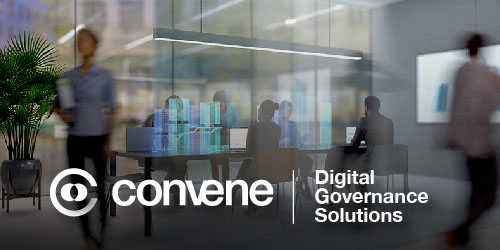Standards are a part of daily business. We all have targets, processes and a quality of work we are expected to maintain. It is so engrained you may not even realise that what you are doing is part of a standard. These goals and methods not only help your organisation but also your industry as a whole.
So, how exactly does a standard help a sector overall?
How Have Standards Already Improved Sectors?
There is already demonstrable proof that standards improve sectors. In most organisations there will be a quality standard you aim to maintain. However, when another company excels this standard, it can usually shift the narrative and tone and others will be expected to follow suit. For example, the A standardisation of paper has allowed the stationery industry to flourish, making it easier to create binders. This shows that standards can help maintain the basic elements of an industry and push forward for change.
Standards can be optional or a requirement depending on the content and sector. However, the majority of the time they are in reaction to a problem. This can be most clearly seen with Companies Act 2006. Which can be seen to be a response to the issues caused by a series of controversies including the Enron Scandal.
However, nowadays we are seeing an increasing amount of preventative standards. We know the climate crisis has started and the worst is yet to come. Many industries are trying to mitigate the impact of not only global warming but also the regulations that will come as this crisis develops. This usually comes in the form of optional standards. The clearest example, and first of its kind internationally, is the SRS.
The SRS set out by the ESG Social Housing Working Group is an ESG standard designed specifically for Housing Associations. Over 70 Housing Associations nationwide have already signed up to the SRS but the impact on the sector is not determined by how many organisations publish SRS reports. It is clear that other Housing Organisations have created their ESG plans and reports based upon the SRS recommendation of priorities.
Therefore, it is clear that a standard, even if only optional, can shift the ideals of a sector. It can also bring the sector together to determine a collective vision for the future. This will help everyone in the sector improve. For example, having net-zero targets will help push forward innovation in energy markets as well as any industry that opts to do so. This also shows how a standard can develop worldwide change, considering the Australia are now opting to develop their own equivalent of the SRS.
Beyond this, a sector-wide standard can also have financial implications. Maintaining a required standard can help you avoid fees and legal complications. Achieving an optional standard may also get you better loans or funding. If you want to see how ESG reports can help you get financially, read our article all about it here.
How To Create A Standard?
One form of a standard could be a Code of Governance, by setting out your expectations for your own organisation you can start a trend for the sector. This is especially true if you include more than the generic mission statement. Demonstrate what your priorities are and make it public knowledge. This will help link you with like minded organisations in your industry. If you are a smaller entity, it may also help increase stakeholder engagement.
Once you have found your peers in your sector, gather together to discuss what matters to you all. What do you share in common and how do you all envision the future of the industry? Discuss transparency, ESG, security, and other elements of good governance. You may be competitors but seeing the end goal together will help improve everyone.
What we have described above is committee-based standardisation. There are two other main types of standardisation. Market-based, that is in response to a change to a competitor’s product, shifting the whole industry’s standard. One example of this is the smartphone, once Apple released the iPhone it wasn’t too long before the “standard” was to have a touchscreen. Of course, not every phone now *has* to conform to this standard but it is certainly expected that a brand will have some form of touchscreen phone. To impose market change you need innovation, good leadership and publicity.
The final form is government-based, this is when the government uses its authority to impose market change. One example of this is the GDPR; by dictating how private data is used they managed to shift the way the market deals with information. If you want to impose governmental reforms, one way to do this is supporting groups that lobby for a cause you care about.
How Can Convene Help You?
Convene is here for your every need, from meetings to reports, we have your secure software solutions.
For your meeting process, Convene is an award-winning Board portal designed to improve efficiency and communication within your organisation. From creating an agenda to establishing a strong admin trail, every step of the process should be as smooth as possible.
Our comprehensive meeting management software is trusted by professionals around the world and includes features such as:
- A Document Library with role-based access to ensure your sensitive documents are protected.
- A built-in Audit Trail so you can be sure you are compliant with all regulations.
- Integrated Video Conferencing so you can make the switch from remote to hybrid working seamlessly, whilst still viewing your Board Pack all on one screen.
- Surveys, with the option for anonymity, so you can be sure you are aware of your employees' opinions.
- Accessibility Features, including text-to-voice, which makes us the leading accessible Board Portal.
Convene is now also available fully integrated with Microsoft Teams, so more than just your Board can benefit from Convene's features. The software simplifies remote, in-person and hybrid work for your whole organisation
For your reporting process, Convene ESG is designed for Housing Associations with the assistance of Housing Associations. Our Early Adopters discussed with us what they needed and with their requirements we developed a tool that would help Housing Associations generate the best ESG and SRS Reports possible.
With Convene ESG you can compare benchmarks, organise your report, assign sections, automate reminders and input your ESG data and the solution will create a word document ready to publish or edit as necessary!
If you’d like to learn more, you can read about our early adopters here. Also keep an eye on our LinkedIn and Instagram as we will be scheduling free webinars soon!
If you want to learn more about Convene’s proven track record, contact us today to book a free demo.








